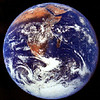
-How does consciousness arise?Critical questions missing (some of my questions are quasi socio-scientific, with some of them probably unanswerable in the next 25 years):
-Why the small number of human genes?
-What the universe is made of?
-To what extent are genetic variation and personal health linked?
-Can the laws of physics be unified?
-How much can the human life span be extended?
-What controls organ regeneration?
-How can a skin cell become a nerve cell?
-How does a single somatic cell become a whole plant?
-How does Earth's interior work?
-Are we alone in the universe?
-How and where did life on Earth arise?
-What determines species diversity?
-What genetic changes made us uniquely human?
-How are memories stored and retrieved?
-How did cooperative behavior evolve?
-How will big pictures emerge from a sea of biological data?
-How far can we push chemical self-assembly?
-What are the limits of conventional computing?
-Can we selectively shut off the immune responses?
-Do deeper principles underlie quantum uncertainty and non-locality?
-Is an effective HIV vaccine feasible?
-How hot will the greenhouse world be?
-What can replace cheap oil, and when?
-Will Thomas Malthus (who predicted that overpopulation could lead to a global disaster) continue to be wrong?
-Will there be a technological singularity event and when?
-Will artificial superintelligence arise, and if so, will it be benign or malign?
-Will we be able to responsibly manage molecular assembling nanotechnology?
-Will human civilization continue to survive into the 21st Century and ward of the growing number of existential risks?
Tags: Future studies, Predictions, Science.

No comments:
Post a Comment